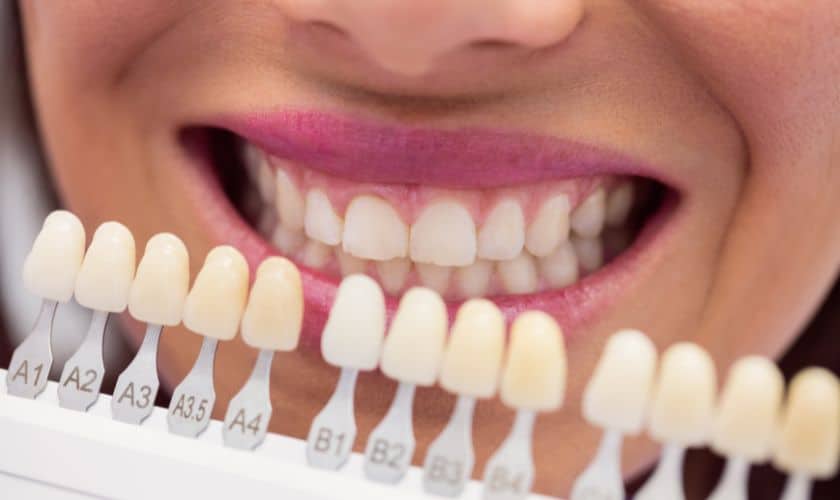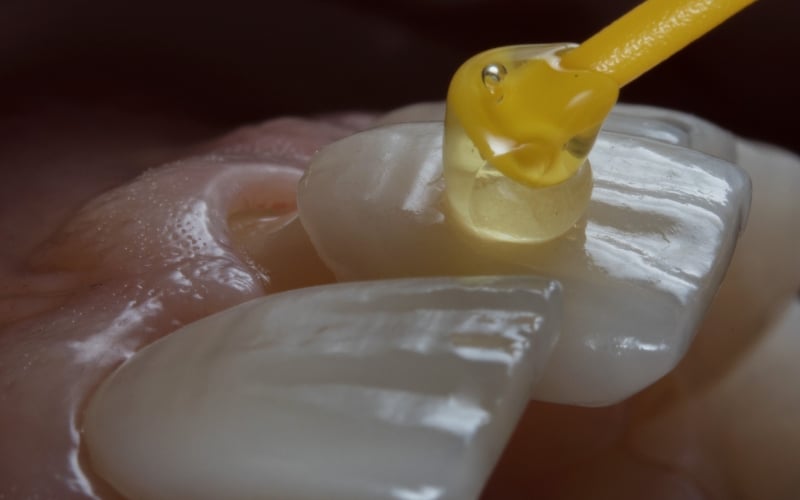
Are you considering getting veneers to enhance your smile, but worried about the potential damage they could cause to your teeth? With so many misconceptions and myths surrounding this cosmetic dental treatment, it can be difficult to separate fact from fiction. In this blog post, we’ll take a closer look at veneers and answer the burning question: do they really damage your teeth? So sit back, relax, and let’s get into it!

Source: www.freepik.com
What Are Veneers?
Dentists use veneers as thin shells of porcelain or composite material that fit over the front surface of a tooth to improve its appearance.
- Veneers improve the appearance of discolored, chipped, or misaligned teeth, making them a popular cosmetic dental treatment.
- Porcelain veneers are custom-made in a dental laboratory and provide an incredibly natural-looking result. They can be color-matched to existing teeth and reflect light just like real teeth do.
- Your dentist can apply composite veneers directly onto the tooth surface.
- The procedure is quicker than porcelain veneer placement but may not last as long.
- Both types of veneers have their pros and cons depending on individual cases. However, they share one commonality: they offer a minimally invasive way to improve your smile without undergoing extensive dental work.
Veneers provide incredible results for patients who want to enhance their smile while maintaining most of their natural tooth structure.
Types Of Veneers
When it comes to dental veneers, there are two main types: porcelain veneers and composite resin veneers. Let’s take a closer look at each type.
- Porcelain Veneers: Porcelain veneers are made from thin shells of high-quality dental ceramic that is custom-made to fit over the front surface of your teeth. They are durable, stain-resistant, and can last for many years with proper care. Porcelain veneers require minimal tooth preparation before placement and offer a natural-looking appearance that mimics the translucency of real teeth.
- Composite Resin Veneers: Composite resin veneers are made from a tooth-colored material that is applied directly to the surface of your teeth. These types of veneers offer an affordable alternative to porcelain but may not be as long-lasting or stain-resistant. Composite resin requires more extensive tooth preparation than porcelain and may need replacement sooner than other options.
Ultimately, the type of dental veneer you choose will depend on factors such as durability, aesthetic goals, and overall oral health. It’s essential to consult with your dentist before making any decisions about which option is best for you.
How Do Veneers Work?
Veneers are thin shells made of porcelain or composite material that is customized to fit over the front surface of a tooth.
- They are designed to improve the appearance of teeth by covering up stains, chips, and other imperfections.
- The process for getting veneers typically involves several steps. First, the dentist will prepare your teeth by removing a small amount of enamel from the front surface so that they can bond properly with the veneer. The dentist will take an impression of your teeth to create a custom-made veneer.
- Once ready, you’ll return to have your new veneer fitted onto your teeth using special dental cement. After checking their positioning and making any necessary adjustments, they’ll then use ultraviolet light to cure and harden them in place.
Veneer work by providing a durable yet natural-looking layer atop damaged or crooked teeth. Adhering closely to the tooth’s surface through cement bonding agents helps protect against further damage while also giving patients smiles so they can feel confident about showing off!
Source: Teeth Talk Girl
Veneer do not cause damage to your teeth. They can, in fact, safeguard your teeth from additional damage by covering up any flaws such as chips, cracks, or other imperfections. Placing teeth covers necessitates the removal of a small amount of enamel from your teeth’s surface, which is a crucial step in achieving a proper fit. However, this is a negligible amount and does not harm your teeth. With appropriate care and maintenance, a veneer can actually help uphold the health and integrity of your teeth for many years.
Veneers are a safe and effective cosmetic dental treatment that can transform your smile. While they may require some adjustments to your oral hygiene routine, the benefits of having veneer far outweigh any potential risks or side effects. With proper care and maintenance, a veneer can last for many years and help you achieve the beautiful smile you’ve always wanted.
It’s crucial to do your research and choose a reputable dentist who has experience with this type of procedure. By doing so, you can ensure that you receive the best possible results without compromising on safety or quality.
We hope this article has helped separate fact from fiction when it comes to whether or not a veneer damages your teeth. If you’re considering getting veneer but still have questions or concerns, don’t hesitate to speak with your dentist directly. They’ll be able to provide personalized advice based on your unique situation and needs.

